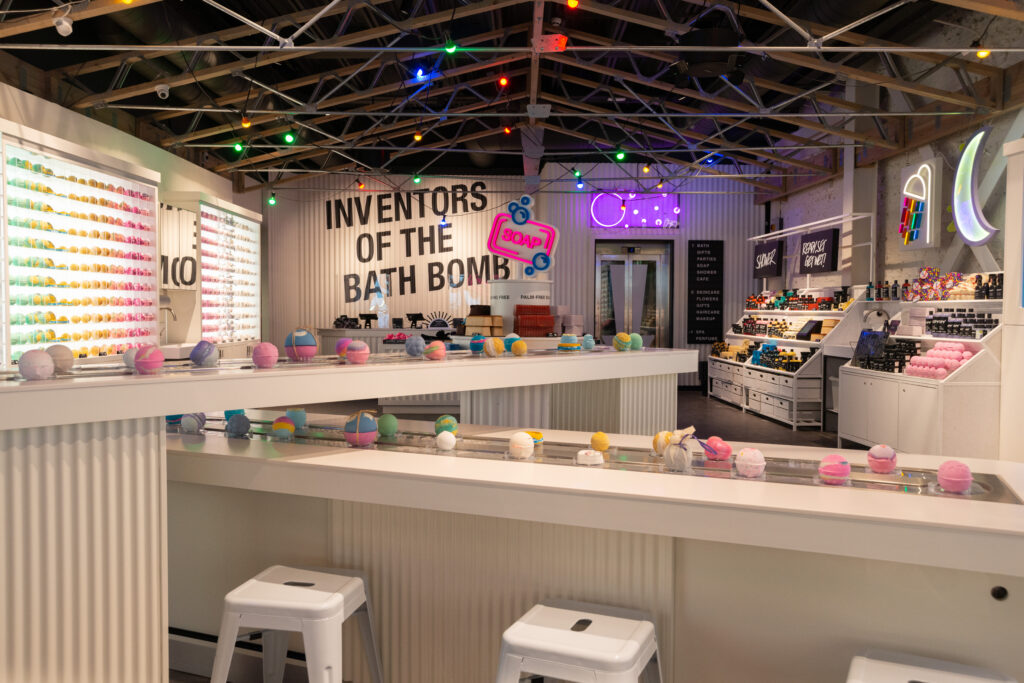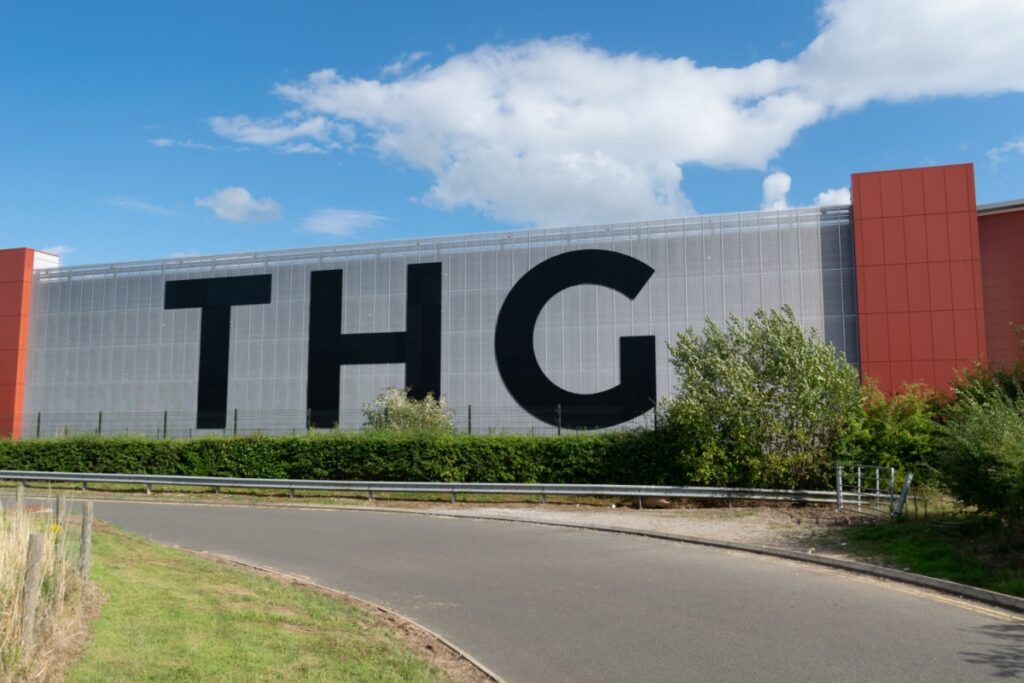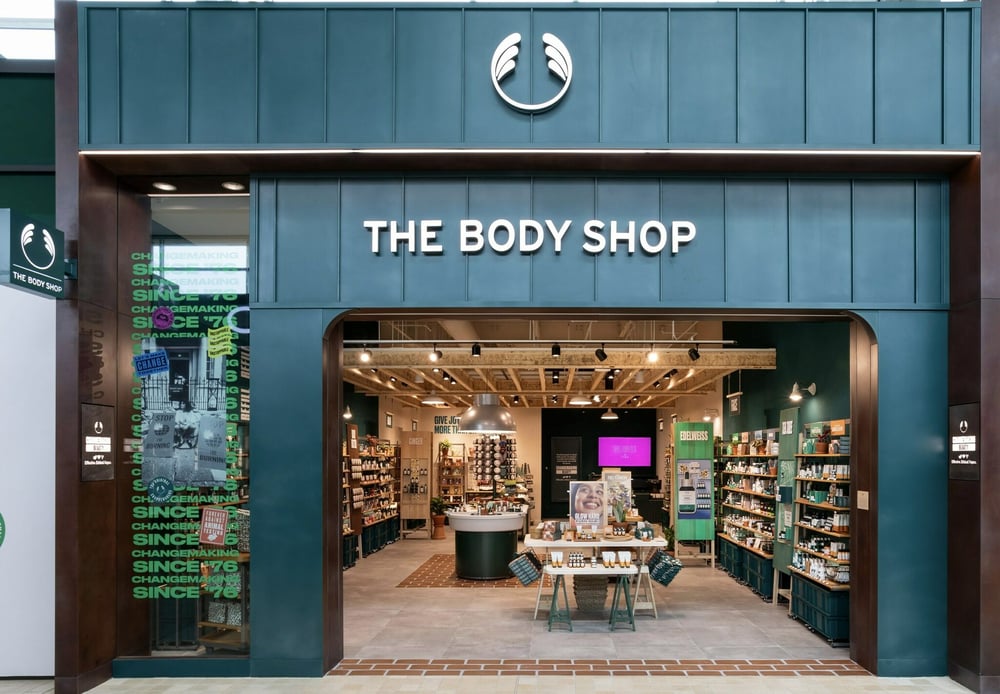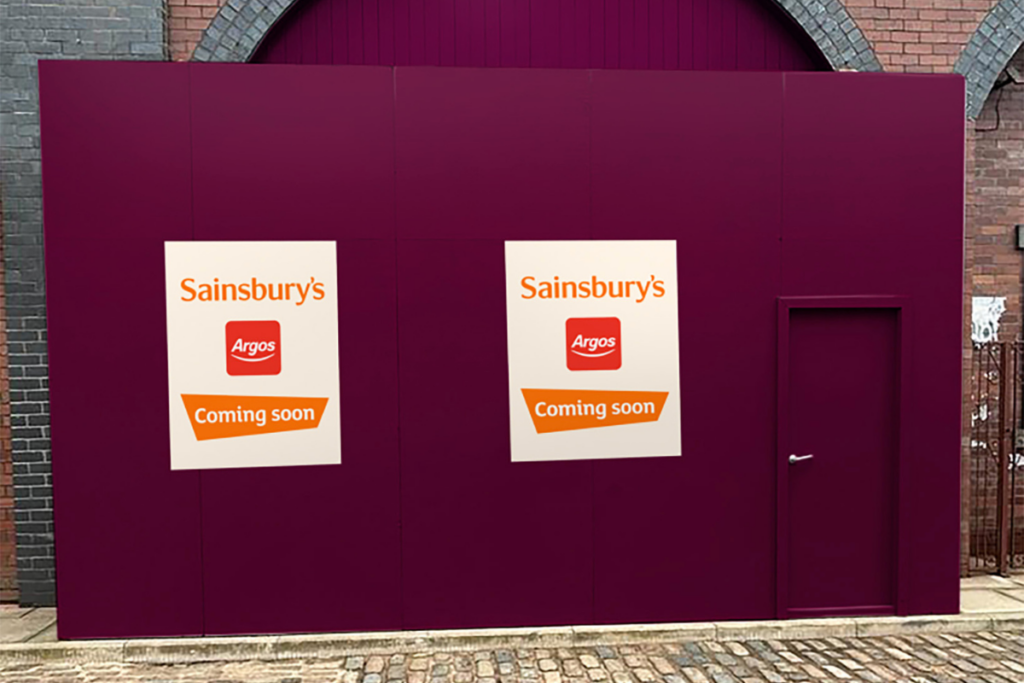It’s been 12 months since Lush revealed it would quit leading social media platforms Instagram, Facebook, TikTok and Snapchat amid safety concerns.
The platforms, which are designed with algorithms to keep users engaged, became the “antithesis” of the retailer’s aim to help people switch off and pay attention to their wellbeing.
Lush co-founder Mark Constantine OBE said: “I’ve spent all my life avoiding putting harmful ingredients in my products. There is now overwhelming evidence we are being put at risk when using social media. I’m not willing to expose my customers to this harm, so it’s time to take it out of the mix.”
The beauty retailer has vowed to come off social before, originally attempting to do so in 2019. However, this time it has kept its resolve and has been social media-free for just over a year.
However, this does not mean it is, in the words of Constantine “completely anti-social”. The brand has found creative ways to connect with customers.
“There is now overwhelming evidence we are being put at risk when using social media. I’m not willing to expose my customers to this harm, so it’s time to take it out of the mix.”
Mark Constantine OBE, co-founder Lush
A year on, we find out what it did.
The retailer insists its move last November has worked in its favour by boosting sales and improving the brand’s reputation.
In the immediate aftermath, Lush posted its best Christmas sales in two years, with revenue up 20% in the five weeks to Boxing Day.
And the good run has continued. The group recorded a £29 million pre-tax profit in its financial year 2022 accounts up from a £45.2m loss in the previous year.
So how has Lush kept connected?
To boost its connection with shoppers, the retailer has invested in big brand collaborations, revamped stores and headline-grabbing campaigns, all without resorting to social media.
The retailer admits, however, that it has resulted in more investment in its marketing spend.
“Experiential offerings and partnerships require a much bigger budget and spend than sponsoring content on Instagram for example,” explains Lush brand and marketing director Annabelle Baker.
But the investment has paid off. The new marketing strategy has seen a greater customer retention rate and will continue to be a main focus in the new year, Baker adds.
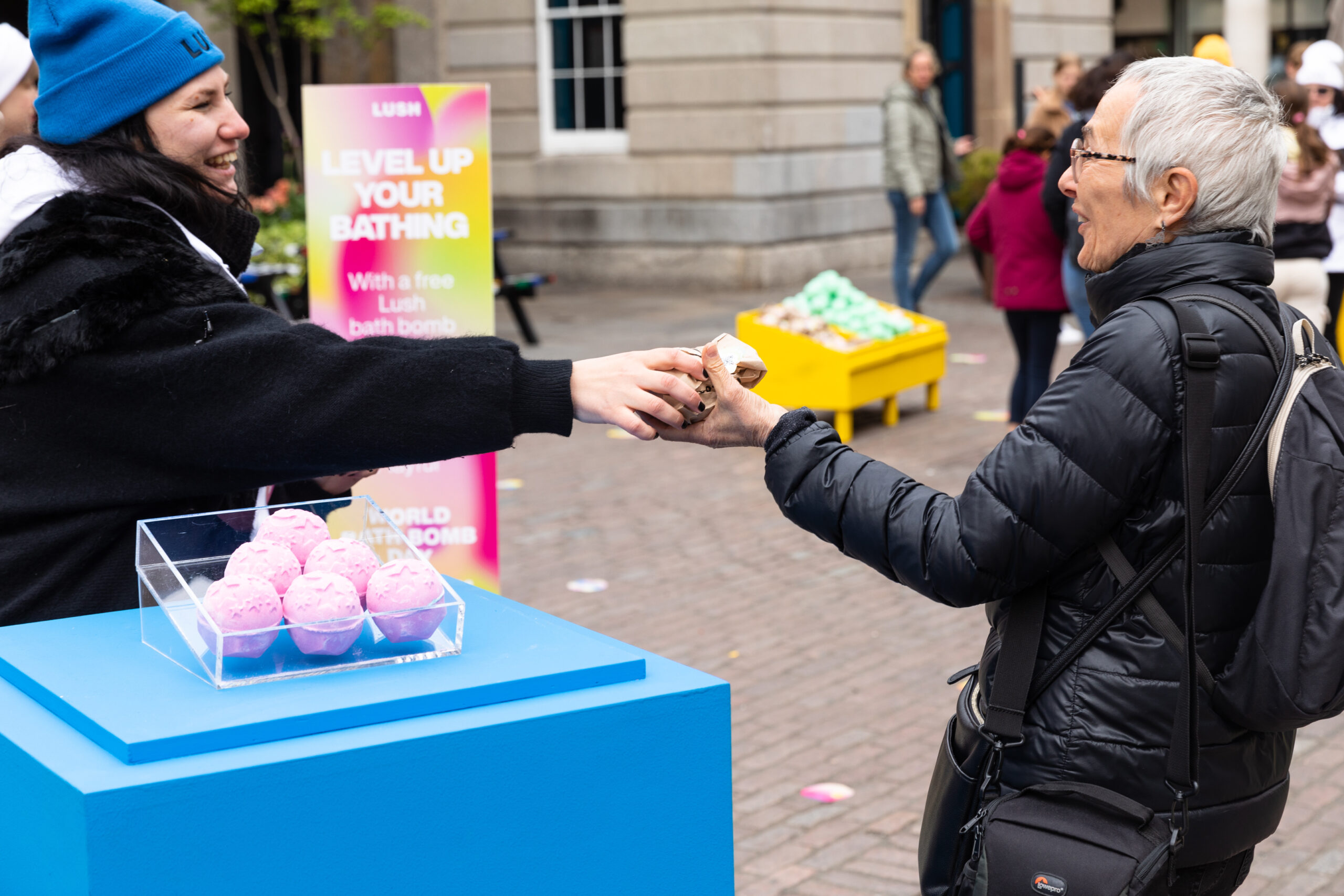
Some of its experience-led campaigns include its World Bath Bomb Day in April where it gave 100,000 of its bath bombs to the public for free.
Lush says the promotional day helped its digital traffic skyrocket 108% while overall footfall, which includes both store and website visits, jumped 60%.
When it comes to collaboration, the retailer has partnered with a range of brands, including Netflix. Lush launched Stranger Things-themed bath bombs to mark on ‘Stranger Things Day’ on 6 November, a day that fans of the cult TV show celebrate.
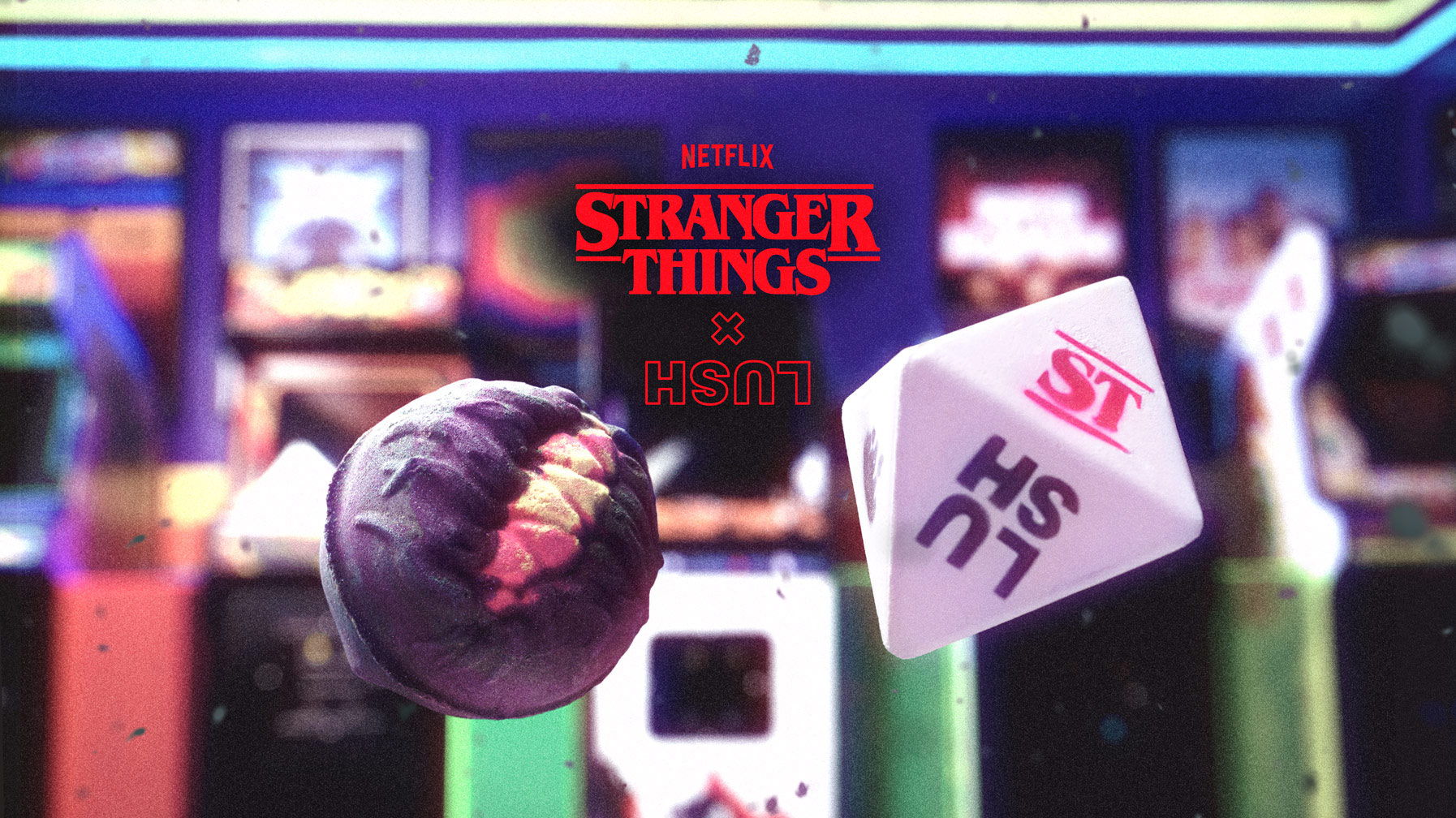
It’s latest collaboration, unveiled two weeks ago, is with fashion etailer Lazy Oaf.
The retailer opted to team up with Lazy Oaf for its first retailer collaboration because its values on transparent supply chains and intentional production aligned.
The tie-up brings back products from the Lush archives and new exclusive handmade cosmetics.
The 17-piece London laundrette-inspired collection includes bath bombs, body sprays, face cloths and towels.
Lush concepts creative director Melody Morton says the retailer was keen to pursue further creative partnerships to help grow its community.
“We want to explore new ways of reaching customers, beyond regular social channels and unhealthy algorithms,” she says.
“We know we can capture a new audience by collaborating with brands and franchises, that people love and follow on unique innovative products.”
Investing in stores
Lush has also made a big investment in its physical touchpoints with customers – its shops.
In July, the retailer unveiled a £7.6 million retail investment into new shops, relocations and refits across the UK, Ireland and Europe.
“We want to explore new ways of reaching customers, beyond regular social channels and unhealthy algorithms.”
Melody Morton, concepts creative director, Lush
During its latest financial year, it opened 26 new shops as well as refitted and relocated 12 of its existing shops.
It saw Lush open a London flagship store on Oxford Street in May which includes a spa, vegan coffee shop, florist and perfume library.
Alongside this, in June, it opened a Scottish flagship in Glasgow offering a ‘spa experience’, beauty services and space for Lush Parties.
Lush global property director Paul Wheatley says: “Physical retail has always been important to us, as it enables us to provide our customers with exceptional, award-winning service.
“That interaction and the conversations we have with our customers allow us to determine the product they require to meet any particular need, ensuring they always go away with the right products.”
This month, Lush will open a Lush Lounge pop-up in Westfield London to further boost its relationship with shoppers.
The brand is inviting busy shoppers to an immersive space in London offering wellness services such as massages, gift wrap for people to colour in and a bath bomb inspired projection experience.
Promoting wellbeing online
Lush may have ditched social, but it hasn’t stayed completely offline.
The brand has made several digital investments including launching a wellbeing app and podcast.
Earlier this year, it launched The Sound Bath for US listeners, which explores wellbeing in today’s society and the themes of personal, social and environmental care.
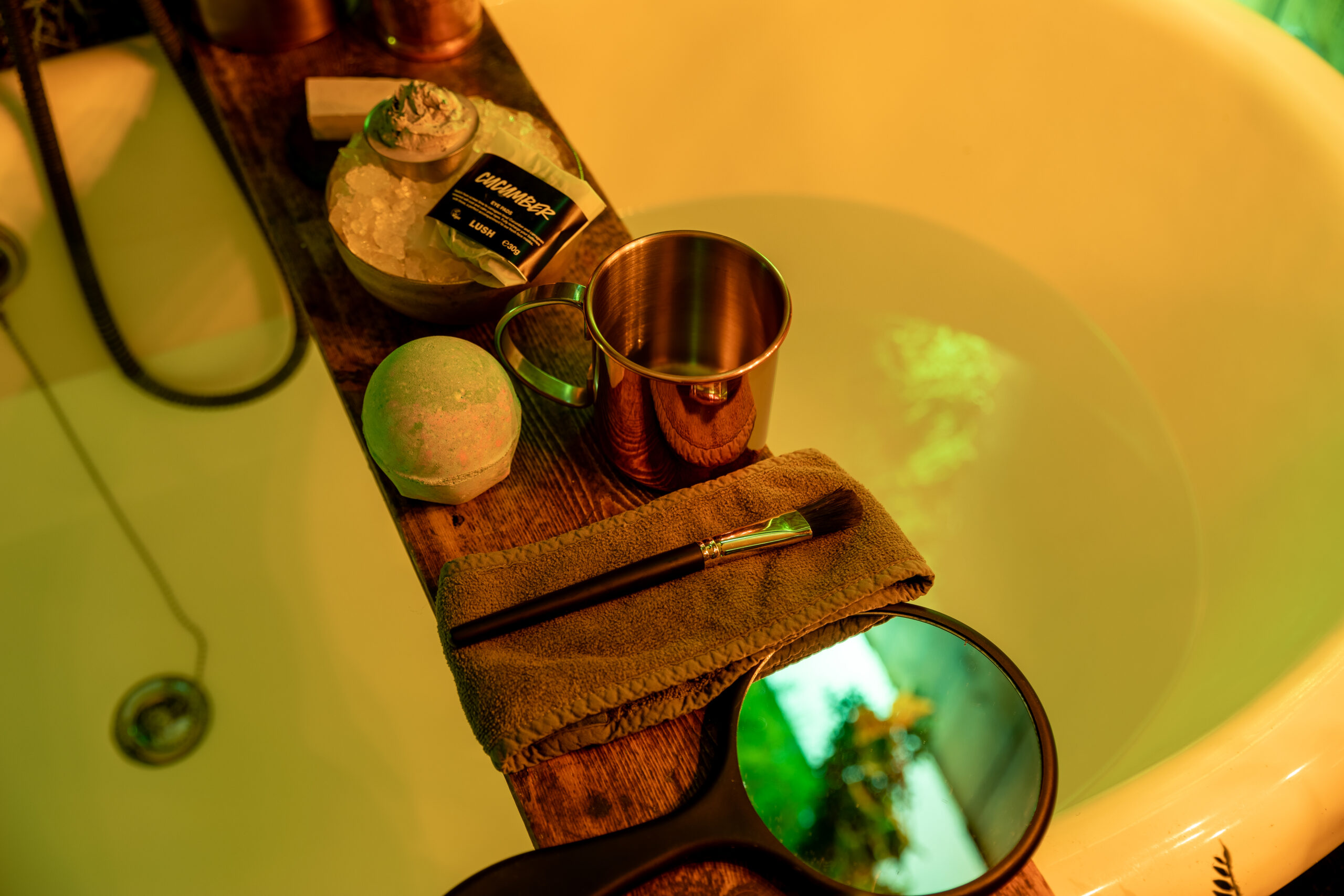
In July, it released the Lush Bathe app that allows users to track and maximise the benefits of bathing and offers immersive audio-visual experiences.
The brand partnered with wellbeing experts, practitioners and sound healers to create the app’s features.
All in all, Lush has proven that inventive brands can thrive without using social media and can create stronger, more meaningful connections with their customers.
Click here to sign up to Retail Gazette‘s free daily email newsletter

